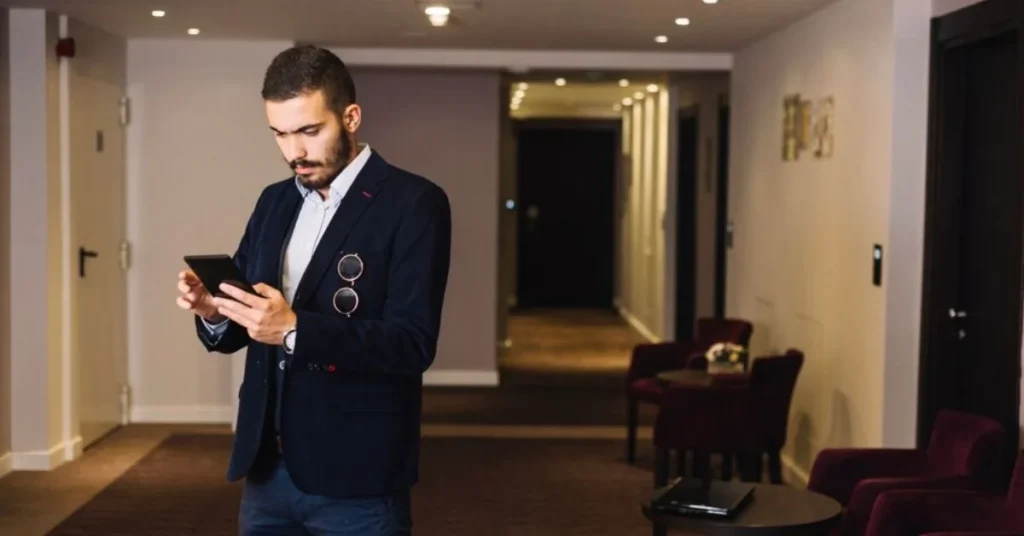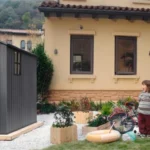Smart hotel solutions refer to the integration of cutting-edge technologies designed to optimize hotel operations and elevate guest experiences. Leveraging advancements like the Internet of Things (IoT), artificial intelligence (AI), and cloud computing, these systems provide hotels with the tools to automate processes, gather valuable insights, and offer personalized services.
Incorporating smart hotel solutions empowers hotels to anticipate guest needs, improve energy management, and streamline back-end operations. By adopting these innovative technologies, hoteliers can create memorable stays for their guests while enhancing overall business efficiency.
Benefits of Smart Hotel Solutions
Enhanced Guest Experience
One of the key advantages of smart hotel solutions is the ability to deliver tailored guest experiences. Travelers today seek convenience, personalization, and efficiency, and smart technologies enable hotels to meet these demands effectively.
Features That Redefine Hospitality:
- Mobile check-in and keyless entry: Guests can check in via their smartphones and use digital keys to access their rooms, eliminating the need for traditional front-desk interactions.
- Voice-activated room controls: Devices like smart assistants allow guests to adjust room settings with simple voice commands.
- In-room entertainment customization: Guests can sync their devices to enjoy personalized streaming services during their stay.
Operational Efficiency
Implementing smart hotel solutions helps hoteliers optimize internal operations. Automated systems reduce the burden on staff, allowing them to focus on delivering exceptional service. From streamlining inventory management to automating housekeeping schedules, these tools simplify complex workflows.
Operational Tools Include:
- AI-powered chatbots: Provide instant support to guests, answering questions and resolving issues 24/7.
- Real-time analytics: Track occupancy trends, guest preferences, and operational performance.
- Predictive maintenance: IoT devices monitor equipment to predict and prevent malfunctions, reducing downtime and repair costs.
Sustainability and Energy Savings
Sustainability is a growing priority for both hotels and guests. Smart hotel solutions contribute significantly to eco-friendly operations by minimizing energy waste and optimizing resource use.
Examples of Green Technology:
- Smart HVAC systems: Adjust room temperatures automatically based on occupancy.
- Energy-efficient lighting: Motion-activated lighting systems conserve energy when rooms are unoccupied.
- Water conservation technologies: Smart faucets and showerheads reduce water consumption without compromising guest comfort.
By adopting these solutions, hotels not only reduce their carbon footprint but also achieve significant cost savings in energy consumption.
Implementing Smart Hotel Solutions: A Step-by-Step Guide
Step 1: Assess Your Hotel’s Needs
Every hotel is unique, and understanding your property’s specific requirements is the first step. Identify areas that can benefit from smart solutions, such as front-desk operations, housekeeping, or energy management.
Step 2: Choose the Right Technology
The right technology makes all the difference. Research various providers and select solutions that align with your goals. For example, IoT-enabled devices are ideal for energy efficiency, while AI-driven tools excel in personalizing guest experiences.
To explore how smart hotel solutions can transform your operations, visit Hotel Smarters.
Step 3: Invest in Staff Training
Introducing new technologies is only effective if your staff knows how to use them. Conduct training sessions to familiarize employees with the features and benefits of the new systems. Empowering your team ensures a smoother transition and maximizes the return on investment.
Step 4: Monitor and Optimize
Once implemented, smart hotel solutions require ongoing evaluation to ensure they meet your expectations. Regularly monitor performance metrics, gather guest feedback, and update systems as needed to stay ahead of industry trends.
Real-World Examples of Smart Hotel Solutions in Action
1. Marriott International
Marriott has embraced IoT technology to enhance its guest offerings. Through their smart rooms initiative, guests can customize lighting, temperature, and entertainment preferences using voice commands or mobile apps.
2. Hilton’s Connected Room
Hilton has taken personalization to the next level with its Connected Room concept. Guests can control every aspect of their room environment, including streaming content from their own devices, directly from the Hilton Honors app.
3. CitizenM Hotels
CitizenM focuses on providing a seamless guest experience with features like self-check-in kiosks and tablet-controlled room settings. Their approach prioritizes efficiency and convenience for modern travelers.
The Role of Smart Hotel Solutions in Guest Satisfaction
Today’s travelers expect seamless and personalized experiences, and smart hotel solutions play a critical role in meeting these expectations. Whether it’s through mobile check-ins, AI-powered concierge services, or energy-efficient accommodations, these technologies enable hotels to create memorable stays.
Personalized Services:
- Customized room settings based on guest preferences.
- AI-driven recommendations for local attractions and dining options.
- Tailored loyalty programs that reward frequent travelers.
Streamlined Communication:
Smart hotel solutions bridge the communication gap between guests and hotel staff. Chatbots, mobile apps, and real-time messaging platforms ensure that guests receive prompt responses to their inquiries, enhancing satisfaction.
Overcoming Challenges in Implementing Smart Hotel Solutions
While the benefits are clear, adopting smart hotel solutions comes with challenges. These include high upfront costs, data security concerns, and the complexity of integrating new systems with existing infrastructure. To overcome these obstacles, hotels should:
- Start with small-scale implementations and expand as needed.
- Partner with reputable technology providers who prioritize data security.
- Seek expert guidance to ensure smooth integration and minimal disruption.
Future Trends in Smart Hotel Solutions
The future of smart hotel solutions is evolving rapidly, with exciting advancements on the horizon. Key trends include:
1. AI-Driven Personalization
Artificial intelligence is set to revolutionize guest interactions by predicting preferences and delivering hyper-personalized experiences.
2. Advanced Robotics
From automated room service robots to luggage handling systems, robotics will play a significant role in enhancing convenience.
3. Blockchain Technology
Blockchain offers secure and transparent solutions for payment processing, identity verification, and loyalty programs, paving the way for a seamless guest journey.
Hotels that stay ahead of these trends will not only attract tech-savvy travelers but also gain a competitive edge in the marketplace.
Conclusion
Smart hotel solutions are transforming the hospitality industry by delivering unparalleled guest experiences and operational excellence. From energy-saving technologies to AI-powered personalization, these innovations are setting new standards in hotel management. As the industry continues to evolve, embracing smart solutions is no longer optional—it’s a necessity.
To learn more about how these technologies can benefit your hotel, explore the offerings at Hotel Smarters.
By investing in smart hotels solutions today, you can position your property for long-term success in an increasingly tech-driven world.







